A few months back I compiled a No-Budget Nightmares column called ADVICE FROM THE NO-BUDGET PROS which collected advice from a wide variety of low-budget film-makers towards young or inexperienced directors who are looking to tackle their first short film or feature. The response to the column was extremely enthusiastic, and since we’re just about to say goodbye to 2012 (and possibly the world as a whole), I thought it was time to put together another compendium of tips, tricks and advice from the interviews I’ve done in the second half of 2012.
There will be plenty more to come in 2013, but for now.. here’s some MORE ADVICE FROM THE NO-BUDGET PROS
To find out more about the films – or to purchase copies – please click on the titles.
Tony Nunes – Director of ZOMBIE ALLEGIANCE (Jul 5 2012)
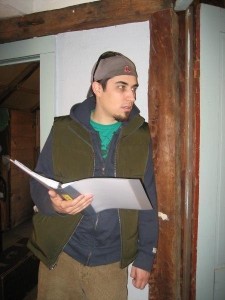
My advice is to put your self out there and do it. Make a movie. Don’t hold back. Surround yourself with creative and supportive people and you can create whatever you envision. If you wait for all of the most perfect conditions you’ll never accomplish anything. Make your own dreams come true. It’s okay to have enormous goals (I do), but remember that starting small is far better than waiting forever for those dreams to come true. Finally, make sure to marry someone who will champion even your most ridiculous ideas. Without my wife at my side I wouldn’t have accomplished anything. Knowing that I have at least one fan on this planet keeps me working to accomplishing my own dreams.
Todd Jason Falcon Cook – Director of ZOMBIFIED and DEATH METAL ZOMBIES (July 19, 2012)
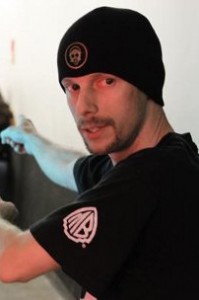
I will always say to learn by watching and by doing and learn from the ground up. If there are independent projects happening in town, get involved as a production assistant or on a crew position to observe and learn what goes on during a film shoot. There is so much more available technology-wise for today’s young film-makers that was not available in my early days so it is easier in a lot of ways for film-makers to get and learn how to use the editing softwares, etc. Start off trying to shoot and edit short films before jumping into a feature. It is always best to learn how to manage smaller projects and work your way up to features, which are a completely different beast.
Robert Tarantino – Director of BLOOD CITY MASSACRE (Aug 2, 2012)

My advice for young filmmakers is:
Grab your camera, go out and make your film. Don’t let anybody stop you! You can only learn from doing it. If filmmaking is your greatest passion then you will make your film. Don’t think you need lots of money. You don’t. All you need is the will to make your film!
Phil Condit – Director of EMPRESS VAMPIRE (Aug 20, 2012)

Basically, just do it! Grab your camera, round up your friends, and convince your family that they would be wise to help you now, while you are still an unknown and accessible.
Important – make a film that you can make. It’s pointless to plan an interstellar sci-fi costume epic if you don’t have access to sci-fi sets, CGI artists, costumes, etc. Assess what and who you do have ready access to and make a film using those locations and those people. I’m not saying don’t dream big, just try to keep your expectations reasonable on your first film. You can go bigger when you have a track record to show your capabilities. Oh, and beware of kids and animals – they never do what you want!
Katie Carman – Director of OFF SEASON (Aug 30, 2012)

Advice for making your first feature. Hmmm. I would have to say the experience of shooting our feature during weekends spread over a couple of months was really great. It gave us time between each shoot to assess where we were with the footage, and to refine what we needed to get. But you really have to have a dedicated group of people helping you out to shoot a film that way, so make sure everyone is on board and understands what they’re getting into!
For female directors getting into genre films, I would only really say to charge ahead as if your sex doesn’t matter. In all my films, I never really consider that I’m a woman directing, I was just directing. So just stick to your guns and charge ahead. Be fearless! And make great movies.
Christopher Goodman – Director of FLESH ART (Sep 16 2012)
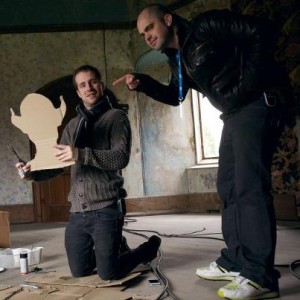
For me, the National Film School was instrumental in getting my first film made – it is worth checking out even if you think you can’t afford it! I was not rich but managed to get funding to make it a viable option. Surrounding yourself with talented, positive people is always important also – it’s very hard to make films in a vacuum unless you’re a one man band animator or something!
Dayna Noffke – Director of MOUSE and PICNIC (Sep 19, 2012)

Do it! A lack of commitment and follow through are what kills would-be movies and would-be moviemakers. People love to talk about making a movie but only the smallest percentage of them actually go on to do it. Perhaps 2% of the world has an idea for a film. Of those, a small number will write a script and even less will finish it. Of the ones that finish a script, most won’t actually shoot the film. At some point you have to commit to it, knowing that it may not be perfect but that you will learn from it. Just showing up makes you a rock star as far as I’m concerned.
Don’t wait for the perfect opportunity to make your movie. Films like TEXAS CHAINSAW MASSACRE and CLERKS would never have gotten made if Tobe Hooper or Kevin Smith had spent all their time worrying about getting the most expensive special effects artist or that perfect location. Instead they invested their time where it counts – in writing a great story and bringing it to life.
Surround yourself with positive people; don’t be afraid to ask questions and seek out help. I’ve found most low or no budget filmmakers are very giving with their time and knowledge. Build relationships with others who are doing what you want to do – if you are genuinely interested in what others are working on and willing to help out on their projects, they’ll do the same. The good news is that enthusiasm and positivity are contagious.
Jason Paul Collum – Director of SCREAMING IN HIGH HEELS (Oct 6, 2012)

That’s such a hard call. The market is REALLY bad. I hate to be a Debbie Downer, but unless you have a good shot at both distribution and getting exposure at film festivals, I just don’t know how people at this end of the genre experience are able to make money. There is SO much dishonesty, and so little money coming in regardless, I’m not quite sure where to tell my fellow filmmakers to go. Make it cable ready, I guess? Try to get a big sale to television (which really won’t net you a lot of money like you’d think). I guess, do your research and be realistic about what you’re getting yourself into. I understand the passion. I understand the dream of fame and fortune. I also know that with each passing year the access to the public as a money-making venture just decreases more and more. DVD is fading away and thanks to the internet THE DAY your movie is released some dildo is guaranteed to upload to a torrent site. Yes, someone WILL steal it. It’s not a maybe; it’s a definite. You will only make money on pre-orders, so make sure you publicize it to death. Whore the title out as much as possible. Advertise in hard copy magazines.
I hate to end the interview this way, but it’s simply the world we live in. Every time you watch a movie for free on the internet, especially an indie movie, you’re putting someone like me – and Brinke and Linnea and Michelle – out of business.
Garrett DeHart – Director of IF I AM YOUR MIRROR (Oct 17, 2012)
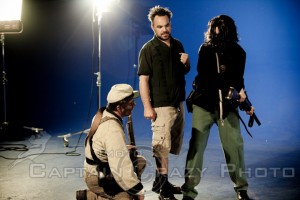
Study great film, shoot constantly and never pass up the chance to work with someone who knows more than you do.
David Matheny – Director of MY STEP-DAD’S A FREAKIN’ VAMPIRE (Oct 29, 2012)
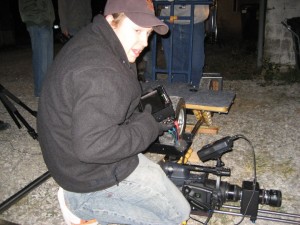
Making a feature is a big task. If you haven’t had much time behind the camera, I highly suggest making short films for a while. Develop your craft a little. While your making shorts you can start to plan a feature. Don’t be afraid to ask questions to other filmmakers or professors. It’s okay to not know everything. Hell, if you’re just starting out, it’s okay to know nothing. Just keep working at it and keep a positive attitude!
Mike Moring – Director of A CERTAIN KIND OF MONSTER (Nov 9, 2012)

I think the best advice I could give to young directors who are working with a limited budget is just to not let yourself be discouraged. Embrace what you do have at your disposal instead of dwelling on a lack of resources or funding. I think oftentimes a person’s budgetary limitations (i.e. I make films financed by earnings from a part time job at the mall) can lead to real creative ingenuity. When you can’t solve a problem by just pitching money at it, it forces you to become creative and resourceful; it forces you to come up with an exciting, original approach to telling your story.
Or at least that’s what I’m hoping. If anybody has any better advice for a young filmmaker working on a limited budget, I would love to hear it. Seriously. Please. Help me.
Matthew Ragsdale – Director of THE CAN-CANNIBALS DOUBLE FEATURE (Nov 9, 2012)
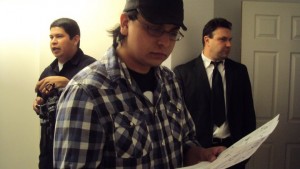
First thing I would say is follow the Robert Rodriguez formula of film making, which is use what you got and refuse to spend money. With using what you got, Rodriguez spoke physically. If you have access to a store, a dog, a junkyard, police car, etc you make a movie around it. I also like to say be inspired by what you got. Don’t force yourself to write a topic, but be inspired by your surroundings, your life style, your friends, your lack of friends and/or your town. I had a burlesque troupe and a warehouse in Oakland, so that’s what the concept was and that’s where I shot. Then remember to refuse to spend money. If you know your idea requires explosions, stunts, props, costumes or anything outside your grasp then you’re approaching it the wrong way and maybe should develop a new project.
Then there’s this great video of Kevin Smith talking about “why vs. why not.” How people need to encourage artists instead of discouraging an artist by questioning why they want to pursue their art. He also talks about taking the shot. He uses a Wayne Gretzky quote and applies it to film and art, the quote is “You miss one hundred percent of the shots you don’t take.” It has really inspired me and it is absolutely true! Always take the shot; it will always be worth it.
And lastly here’s a bit of my own advice which is to be honest with yourself and your craft. Acknowledge your short comings and/or faults and learn from them. Don’t just arrogantly proclaim, “I’m my harshest critic” then praise yourself. You won’t learn that way. I say this not because I know better but because I see the faults in all of my own films and I admit to them. When I think back or watch what I did wrong in a film that just makes me want to do better with the next one.
Cam McHarg – Director of THE END (Nov 9, 2012)

New filmmakers are making the most professional and creatively mind-blowing movies hand over fist right now. Just go take a look at the Vimeo Staff Picks section every day. It’s really kind of amazing. I think that quality SLR cameras have really been the game changer. It’s really more possible to make great little movies for very little now than ever before. I guess my best advice would be to really embrace collaboration. That’s actually the best thing that you can get from film school – creating relationships with great artists who want to work together. If you have a strong concept and you can sell your dream as a mutual project to showcase everyone and their strengths, then you all have something to believe in and fight for, and hopefully you can all make something to be proud of. You can do it all yourself, but I think you will probably sell yourself short. Bring great people together for a great mutual project, give everyone direction, and then allow everyone to work their magic and bring their personal genius and creativity to the table. To me, it’s really about surrounding yourself with awesome people all across the board, which is what I was lucky enough to be able to do, and I can’t wait to do it again.
Ward Roberts – Director of DUST UP (Nov 16, 2012)
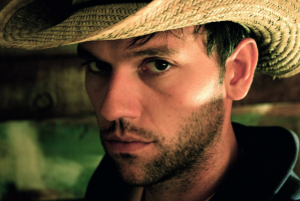
Write the kind of movie you love for the resources you have. What great actors do you know? Write them parts. What cool, unique locations do you have access to? Set your story within them. Do you know some kick ass musicians who could do your tunes? Get them on board. Write to your strengths, both in terms of your own talent and what you have the ability to produce with little or no money. Then just go get it done, whatever it takes.
Steven A. Grainger – Director of SUPER TROMETTE ACTION MOVIE GO! (Nov 23, 2012)

Don’t let anyone tell you you can’t make a film. Take advice, but always consider the source. Don’t give up when things go wrong. Always be open to new ideas and never be afraid to ask for help. You will learn form your mistakes. Do it out of love, not the desire to get famous or rich, cause neither one is likely.
Paul Ragsdale – Director of CINCO DE MAYO (Dec 6, 2012)
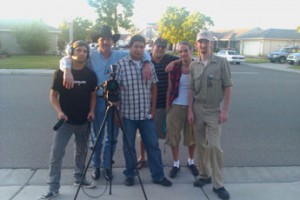
The only advice I can give to young filmmakers is to really explore cinema and your own self. Really think about how film has shaped you as a person, and why you like the things you like. Tap into your obsessions, convictions and fears. Respect the collaboration process, keep good contacts with people that help you. Be open to ideas, criticism and compliments from others as is can only make you better. Have an open mind, watch everything and love film with all your heart.
Sweetback
- [NO-BUDGET NIGHTMARES] PODCAST #80: PLAGA ZOMBIE (1997) - July 25, 2016



No Comments